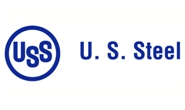Product

August 13, 2019
U.S. Steel: No Index-Based Pricing in 2020 Contracts
Written by Tim Triplett
U.S. Steel is planning a fundamental change in the way it goes to market, informing its salesforce this week that it will no longer use index-based pricing effective with its 2020 contracts. Should other mills follow suit, the move has wide-ranging implications for steel prices and the way contracts are negotiated.
In an Aug. 13 letter to its North American Flat-Rolled Sales Organization, the company stated the following:
“As we have seen in business conditions over the last several quarters and years, the North American flat-rolled market remains volatile and unpredictable. This volatility creates not only significant challenges to plan and run our continuous operations, but it also creates enormous headwinds for our customers who are attempting to manage their demand, inventory, and balance sheets.
“It has become clear that a component to this uncertainty and risk today has been the growth of adjustable price contract mechanisms. While the intent might have been to ensure a steady flow of contract volume across a contract period, the reverse has become the case, creating volume uncertainty and disruption throughout the supply chain.
{loadposition reserved_message}
“Furthermore, a significant portion of the flat rolled market which now transacts under these price adjustable contracts is being driven by spot market transactions which are only a minute fraction of the total market. This often serves to distort the economics of these volume-based agreements.
“To that end, the decision has been made that we will not enter into spot market based adjustable price contracts in 2020 with our customers. We have ample price supply options in which we will be more than happy to engage with our customers to meet their volume and price needs, just as was done mutually many years ago.
“Transaction by transaction discussions and/or monthly negotiations used to be a staple in our business relationships, not to mention quarterly, semi-annual, and annual fixed price agreements, and we are prepared to utilize any of these options while also satisfying the volume needs of our customers over a defined period,” the company said.
U.S. Steel’s action raises the question: How will other mills respond? Look to Steel Market Update for follow-up reports. Meanwhile, see the related story in this issue with market reaction.







